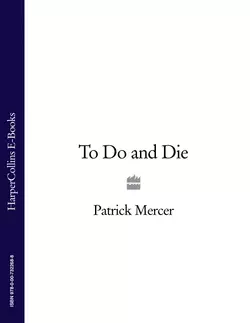To Do and Die

Patrick Mercer
Тип: электронная книга
Жанр: Современная зарубежная литература
Язык: на английском языке
Стоимость: 229.69 ₽
Статус: В продаже
Издательство: HarperCollins
Дата публикации: 16.04.2024
Отзывы: Пока нет Добавить отзыв
О книге: The historical fiction debut from former soldier, BBC defence correspondent and MP Patrick Mercer is a thrilling military actioner set during the Crimean War.1854. Newspapers report that war is imminent in ′the East′ as the Western powers quarrel with Russia over fragments of the crumbling Ottoman empire. Wanting to prove himself to a father who will not let him forget about his own self-proclaimed military glories, Officer Tony Morgan is keen to set sail. Meanwhile, the Morgan′s chambermaid, Mary, whom Tony loves but cannot marry, has wedded another officer in his company and will be accompanying the regiment to the front as a nurse.Arriving at Sebastapol in the Crimea, the company′s first engagement with the Russians fill the company with a short-lived confidence. Morgan is eager to prove himself a worthy leader, but in the face of several bloody engagements which decimate the company, he finds himself shaken to the core by the brutality of war. He also has to quell potential mutiny against the cowardly subaltern Carmichael, whose first instincts are always to save his own skin. His romantic longings for Mary are revived after her husband is severely injured and she nevertheless proves herself a noble and brave addition to the company. Facing dire conflict on the battlefield and off, within his company and within himself, Morgan is going to be tested to the limits…In his fiction debut, Mercer’s twenty years of military service is all there on the page. His mastery of both the broad sweep and the finer details of military engagement is superb and bound to make an impact with military action fans. His characterisation of the regiment is wholly persuasive and he nails soldier psychology, slang and the interactions up and down the chain of command with deceptive ease. This is probably the closest any of us will get to being there.